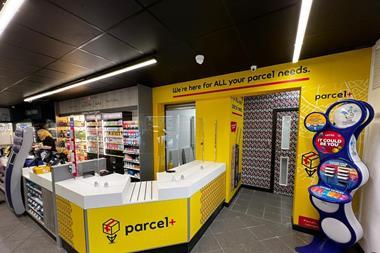In the battlefield that is neighbourhood retailing store owners may be the generals of the operation, but staff are the frontline troops. Without them, your big plans for the store would come to nothing, so keeping them onside and retaining them for the long term is a necessity.
But ensuring that staff remain loyal extends beyond paying them a reasonable salary. According to the latest HIM Convenience Tracking Programme (CTP), only 52% of convenience store employees said that they would definitely be working in the same store or chain in 12 months’ time, while 32% answered ‘maybe’.
So how can you turn a ‘maybe’ into ‘definitely’? A clue may well lie in responses to another of HIM’s survey questions. When asked, only 55% of staff said they felt that they were kept well informed about company and store developments.
Leading retailers and their staff claim that this is one of the main factors involved in keeping employees interested and dedicated to the business. Ramesh Shingadia of Londis Southwater in Horsham, West Sussex, has held Investor in People status since 2003 and believes that it’s important to keep staff members motivated to maintain their interest in the job. “Retail hasn’t always been the most glamorous of industries and is sometimes seen as a last resort, so it’s important to inspire staff members,” he says. “We’re lucky that we’ve had quite a low turnover in staff, given the high churn rate in the industry. It’s about making sure that staff members are happy.”
Ramesh claims that one of the main ways to keeping staff happy and passionate about what they’re doing is by giving them insight into the business. “As well as appraisals for staff, we also keep them up to date with how the business is doing,” he explains. “It helps make them feel more involved in the store and that they’re working towards something.”
In his meetings, Ramesh will analyse how the economic situation is affecting the business. He’ll review any recent promotional activity that the store has taken part in and how successful it has been. He’ll also compare his store’s sales with other Londis branches in the area and set key priorities for the business.
Sharon Cannell has worked at Ramesh’s store for four years and is completely devoted to the business. “I couldn’t see myself working anywhere else,” she states. One of the reasons she values working in the store is the level of consultation Ramesh and his wife Nim have with the entire staff. “There are regular team meetings, and we know that we can always approach them,” she says. “It helps us have a better understanding of the store and the industry itself.”
Skillsmart Retail chief executive Anne Seaman agrees that talking to staff about the bigger picture is vital. “It is essential staff are informed of developments, especially in times of change when people will be worried about their jobs and rumours tend to start,” she says. “At other times, keeping staff up-to-date on the direction of the business will help them feel included and that their contribution is important to its success.”
Kishor Patel, who owns seven stores in Bedfordshire, claims that his employee turnover decreased dramatically when he adopted a strategy of involving staff more in the mechanics of the business. “Over the past couple of years we’ve noticed a huge decrease in staff turnover. In some stores it’s nil, whereas in the past it was normal to have five or six staff members leaving over the course of a year.”
In the past 18 months he has started holding formal meetings away from the store, with two managers from each store attending. “We discuss going forward and we set out four key performance indicators looking at markers for sales, wastage, productivity and margins,” he says. “This way everyone understands how it all happens not just the basic message of ‘increase sales’.”
The managers then hold their own staff briefings and convey the key messages to the team in detail. “They discuss what we’re looking for both in terms of the company as a whole and on a micro-level what needs to be done in-store to achieve this. Some retailers may see this as an obstacle or as time wasted, but it’s been very beneficial. We can quantify the difference it’s made to us. It means staff can understand the consequences of their actions. They’ll want to do better and they’ll know if there’s something they need to improve on.”
Barns Green Village Store’s staff are also kept informed about the Horsham business. Sales assistant Jordan Green is kept in the know about the financial health of the store, any upcoming changes, and owners David and Pippa Heritage’s vision for the business.
“We’re all aware of what’s going on in the business and how the store is doing,” says Jordan. “The owners want us to be interested and making us aware of everything that’s happening really helps. They will consult us about most things that are taking place in the store.”
He says that David and Pippa try to educate them about the industry as much as possible. “They encourage staff to ask questions about the business so we get a better understanding of how both the store and the industry works,” adds Jordan. “It helps make it more than just a job.”
David says that communicating with staff members in this fashion does make them more passionate about it. “If staff can be engaged and are shown the inner workings of the industry, they might develop a passion for it and that benefits us as they take what they learn and use it in the store.”



























No comments yet